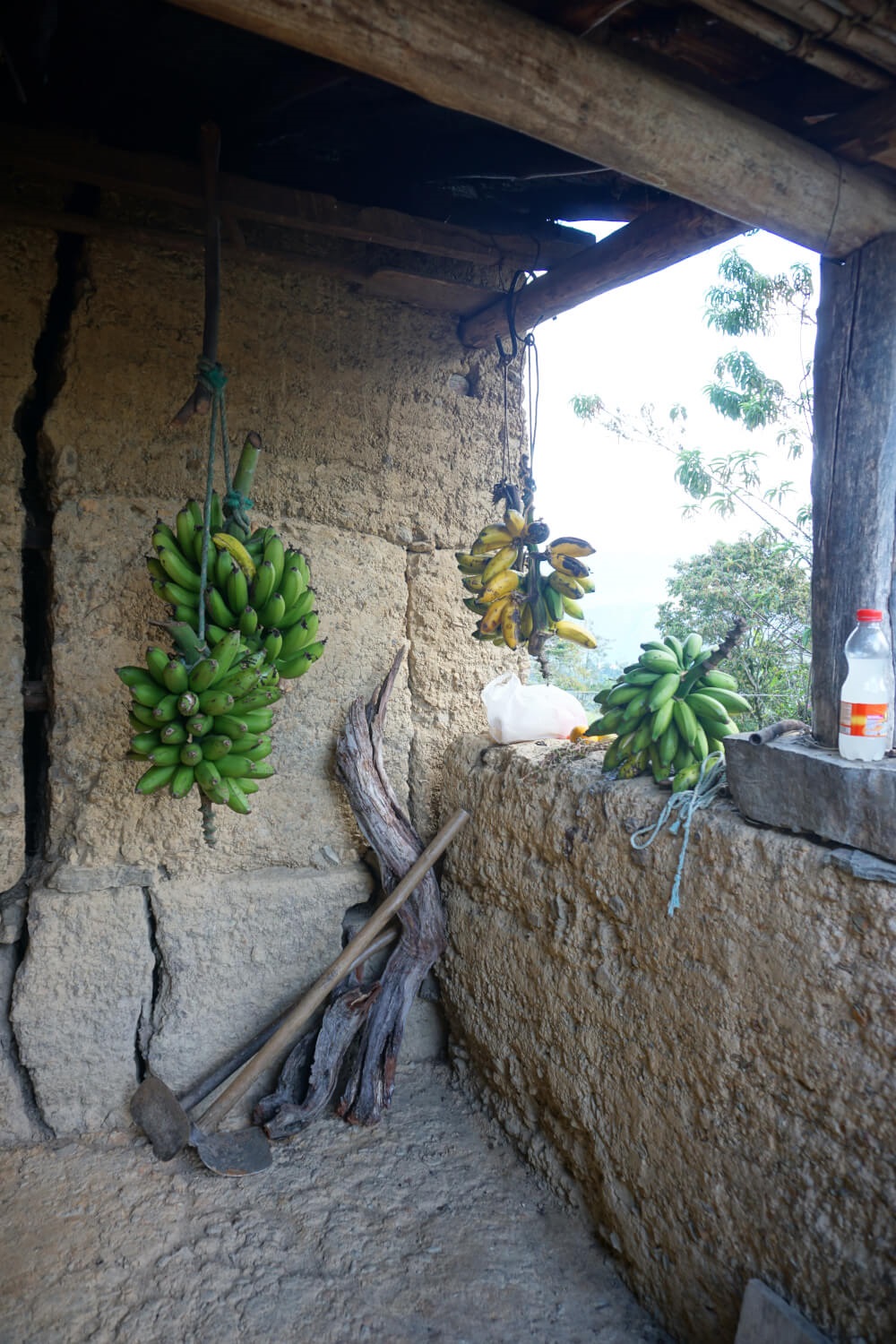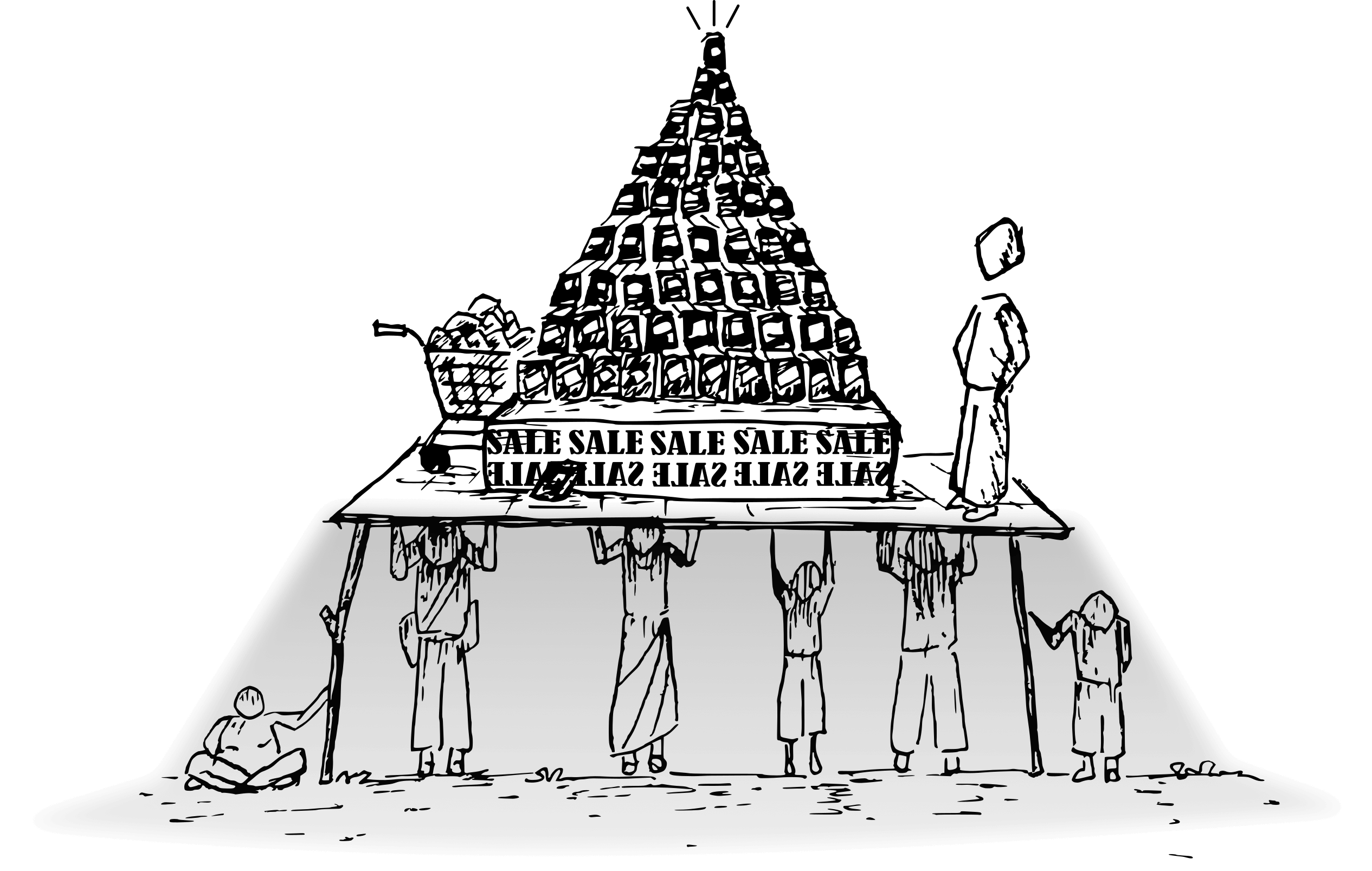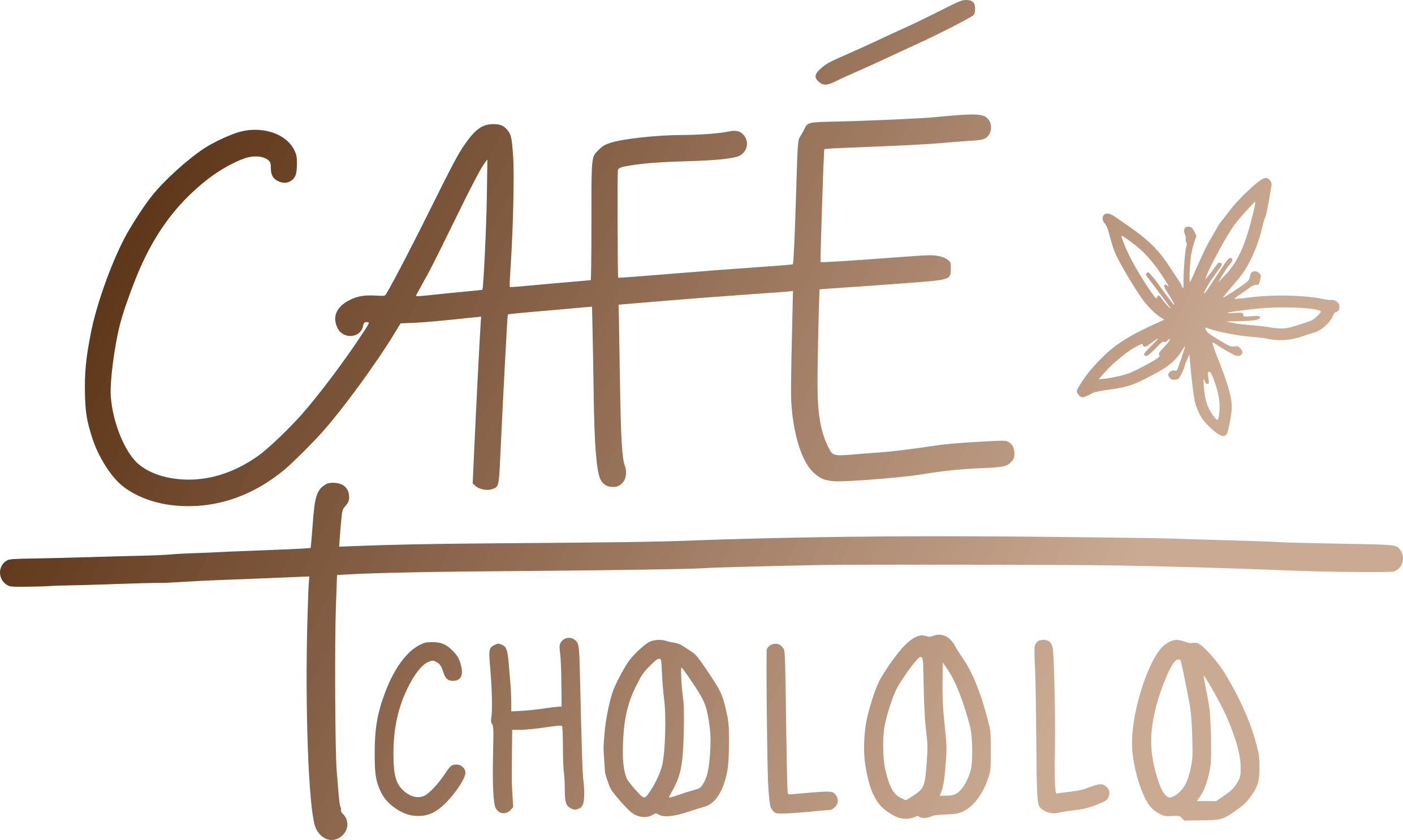What describes Jorge Amado’s in his novel Cocoa , written in 1933, reflects the current situation in the coffee sector. It also allows to build parallel with other commodities and concerns. Astonishingly, the similarities between what he describes and nowadays context are scaring: Most of the crops and trades in the world are ruled by the same unfair processes. Changing things one by one would lead to fairly include everyone who participates to the chain value. It means a better distribution of the value leading to less hungry and better access to basic needs, education and health. It will undoubtedly impact infant mortality and life expectancy.
PERSPECTIVES
“We knew that we worked for 3 500 reis that the commissary would take us. […] We could not pretend to be owners. 1 in 1000 could become rich.”
Rachel, a Colombian farmer from Cauca, explains that in spite of years of saving, the family is still not able to invest in a proper coffee treatment station, the key for better prices and less painful job. The plastic tank for fermentation and washing the coffee properly represents two years of tough savings. Any unexpected events extinguish all the efforts. And the unexpected always shows up, which perpetuates poverty. Receiving their payments, the coffee farmers first cover the debts. The money left pays food and very basic needs, but isn't always sufficient. There is nothing left and poverty is deeper through generations
Textile
In January 2019, Bangladeshis workers obtained an ৳8,000 takas salary for a month. It means $21 for a week of more than fifty hours. What could be their future investments …? 0.02% of the world population provides 3% of the clothes. Roughly for nothing.
WORKING TOOLS
“At the moment work is dreadful, unless you really want to have a hard time.
-Where?
-In cocoa fields. With the hoe.”
In 2020, the hoe still is, with the machete, one of the unique tool that coffee farmers own. Due to low productivity and low prices, the peasants remain poor through the decades. Conditions of living remain rude for many small growers. Electricity is definitely not available in the entire world. When there is, it is often reduced or cut several hours a day, during the key hours. Water does not flow indefinitely from the tap water. People also have to make it boil to sanitize it, which require to light the fire with wood accumulated on the way back from work because there is no gas stove or induction hob. This clearly impacts the health of the farmers and reduces life expectancy.
Producers feed the world but do not have enough food for them.
The poorer the country is, the more agriculture is a key economic sector.

IMMIGRATION, SEASONAL WORK AND CHILD LABOUR.
“Don’t think about it … More than 300 migrants arrived from dry areas, they do any kind of job for any pay … and we are starving.
- We are defeated before starting the fight.
- We come defeated to the World, concluded Valentin.
We bowed our heads. And the next day we came back to work for 500 reis less.”
In Huila, Colombia, in 2019, many Venezuelans, and also people from other Central
and South America countries, come to work as harvesters in the coffee fields.
They all were fleeing terrific political, climate and/or economical contexts. They
also worked as hair cutters, sellers, cleaners … Sometimes they come alone and
sometimes the entire family joins, and there are no many other options that
everybody goes to work.
The International Cocoa Initiatives aims to protect children and communities combining states’, people’s and industries' involvements.
Major actors of the industry are partners, yet the road is still long to erase child labor and implement decent distribution of the value.
HAZELNUTS
The example of the hazelnuts reveals that ethics is latent in every thing we buy.
Migrants workers, native or not from Turkey, harvest nuts for ~$80 per month.
The entire family has to live with it. Child labor is tremendous there. One of the
famous multinational uses hazelnuts in its chocolate paste. On its website, it
tells a beautiful story about taking care of the nuts and quality control through a
4 or 8K resolution video.
The public opinion and the workers have to be
implicated to. Some parents bring the children to the fields because there is no
sufficient revenue: even if a school was open for them, there is no money to buy
clothes or pencils to the child. Malnutrition has been targeted as a major risk for
successful scholarship.
It is a long process and it has to be followed in the time. In the Peruvian
Amazonas, unused and damaged -but recently- built constructions are
everywhere. Intention was surely very good as indicated the panel of the
programs, for women rights and inclusion, indigenous arts, music centers …
But within 5 years it was abandoned. To avoid it, the needs have to be
studied and expressed by the one who will bene0t it. More precise actions,
aiming children from a speciǝc age each year, has been implemented in
Ordu’s area in Turkey to ensure that the program is shaped for them and
that they will continue going to school until being graduated. In this case,
child labor has been tackle by local institutions because they want children’
life not to be miserable. And child behaviour expresses that they are willing
to change the current state of affairs. In the places where no sustainable solution have been implemented, poverty’s vicious cycle runs. That say, greenwashingconsists in saying that trees will be planted, or that school will be built, with the intention to sale more and glorify the brand. Without thinking about knowing the people concerns, their cultures or their needs.
In the Peruvian Amazonas, in Cameroon, and in other places, many buildings are left abandoned less than 5 years after the construction. The projects have to be expressed to the people, not imposed to them.
THE PRICE TRAP OF COFFEE
“ There were dough, two years ago. Cocoa rises 40 milreis. Colonel paid, right. We earned 5 milreis per day.
- Did you save money?
- Nothing … everything raised: dried meat, cassava, beans. No one was doing better. For you, it the same, whereas cocoa increases or drops.”
Today, the same economic eǫfects are still topical. A Cameroonian father highlights that it is even worst than before, as a coǫfee bag of 100kg was paid ~75,000 F.CFA (West African currency) in 1975, and is now paid ~65,000 F.CFA. In the same time, sugar, juices, and bananas cost at least 3 times more than in 1975. The DECLARATION OF THE PARTICIPANTS OF THE SECOND WORLD COFFEE PRODUCERS FORUM assesses it using the example of a Jeep car that would be 3 times more expensive between 1982 and 2018.

POTATOES
This is exactly what Peruvian potatoes producers’ deplored in the demonstrations of the beginning of the year 2018. Potatoes originally come from Peru, and now that the Peruvians can not enjoy it
Agriculture
In the entire world, farmers mobilized and organized themselves to obtain better conditions. Repression is often the response offer by the States. Demonstrations in India engendered more than 150 death people from 2020 until mid-2021. They manifested against laws that generate insecurity towards prices.
STATE INVOLVEMENT
“We lived, so to speak, out of the world, and no one cared about our misery.”
.
As Yaya, a young Cameroonian farmer, explained in May 2021, the peasants felt abandoned, by the State, which stopped provide technical assistance, by the companies, that bought for lower prices, and by investors, that stopped the partnership. Yaya said no white guy came anymore in the last 40 years, whereas they were here when they make profits with coffee after the World War II
WINE
Terroir, post harvest treatment, assembly, cupping and many other concepts are
common between coffee and wine.
One major difference remains: The coffee producing countries almost never help
their peasants. Provide chemical inputs and eventually technicians’ assistance
are the exceptions. Doing it, the states often aim to increase the exported
volumes without taking into consideration the future crops. It is about the trade
balance, not about sustainability and people.
In the European Union, subventions to farmers are provided. The example of the
endowment to young wine cultivators shows that working in the mountain may
generate more expanses. In effect the help to the capital depends on the land
considered as: plain, disadvantaged, or mountain. It respectively goes around
€12,500, €15,000€ and €26,000*.
So, coffee producers are in dented areas, and have neither subvention nor better
rates for loans, nor help for tourism or to export … all this completed with hard
access to the markets, to the information, to the technologies and even to
cooperatives that could be use as springboards.
If it is hard for French peasants to be competitive and survive, imagine world
poorest countries’ people preoccupations.
We shall enter a win-win economic system. It is not Utopian.
Every purchase is a
choice. We all buy things every weeks, so everyone can be a piece of the engine
that enhance ethic businesses.
Don't expect the laws to change,
Don't let the marketing to decide
Bibliography and websites:
Cacao, Jorge Amado, 1933. Tracuded from Jean Orecchioni's version.
Whewell, B. T. (2019, 18 septembre). Is Nutella made with nuts picked by children ? BBC News. https://www.bbc.com/news/stories-49741675
https://www.nytimes.com/2019/04/29/business/syrian-refugees-turkey-hazelnut-farms.html
https://www.lemonde.fr/international/article/2019/01/14/au-bangladesh-des-milliers-d-ouvriers-du-textile-en-greve-pour-reclamer-de-meilleurs-salaires_5408710_3210.html
https://www.cavb.fr/wp-content/uploads/2014/10/Répertoire-des-aides-à-la-viticulture-2.pdf
https://peru21.pe/peru/paro-agrario-puntos-entender-conflicto-productores-papa-394310-noticia/
https://www.unicef.org/protection/child-labour
https://cocoabarometer.org
